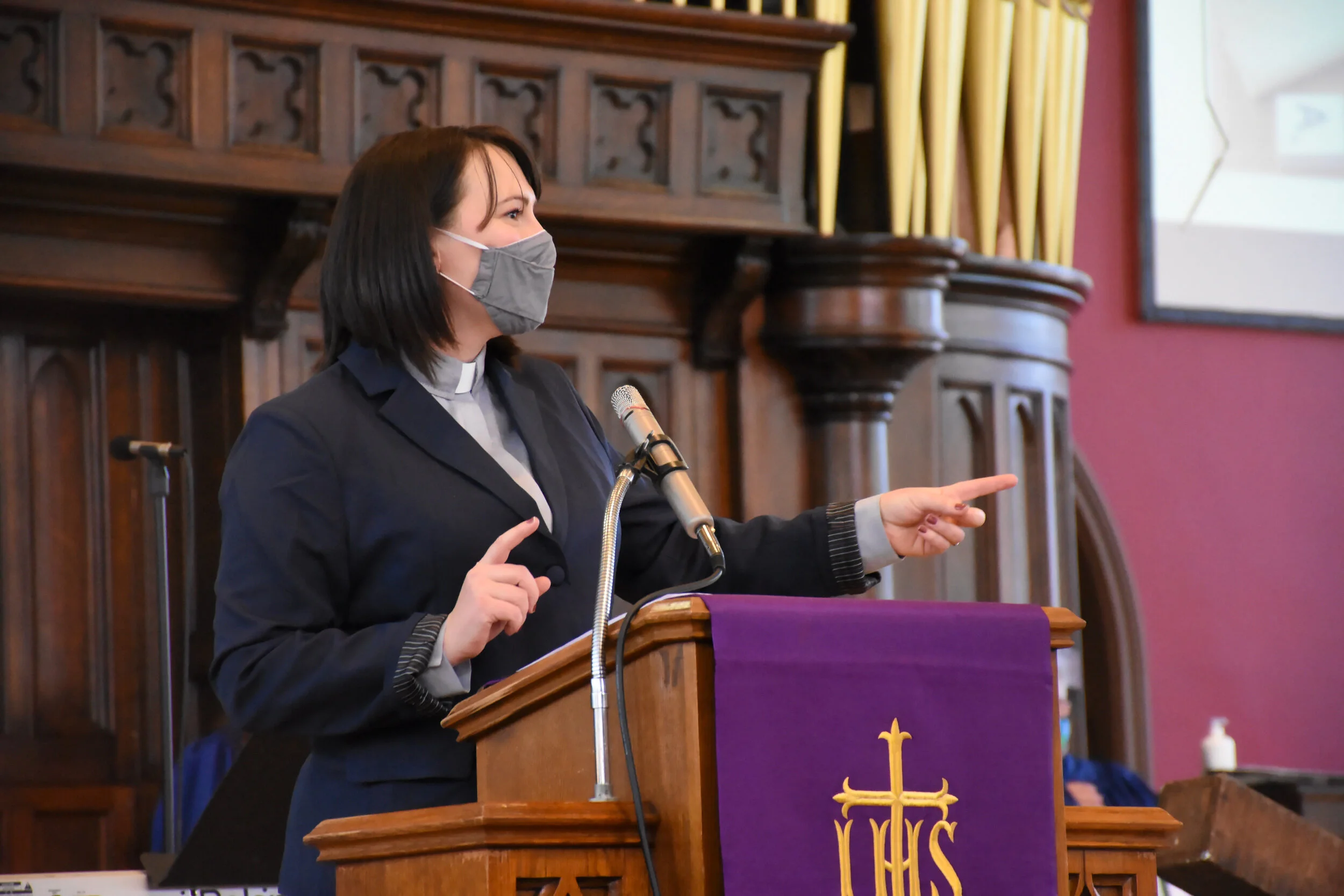Studies show that singing to a yet-to-be-born child can have a profound influence on him or her. Studies have shown, for example, that fetuses can sense audio vibrations and rhythms early in pregnancy — so much so that the baby is able to recognize the parents’ voices right after birth. A song or a story can imprint a child’s mind even before he or she is born and can have a lasting influence.
When Bueno saw his family’s name mentioned in the local newspaper, he was not happy. In fact, he was downright devastated. He had spent nearly his whole life trying to escape his family and so far had succeeded; the last thing he wanted was to read an article with the headline “Denver’s Biggest Crime Family.”
Sorry. It’s the First Sunday of Advent and none of today’s texts are about you. None of this morning’s scripture panders to your exaggerated opinion of your moral and spiritual potency. There’s nothing in any of the scriptures for you to think, for you to feel, or for you to do. I know that makes you uncomfortable.
Very few of us crawl out of bed on Sunday morning, stumble to the shower, wolf down some Pop-Tarts and then drive to church because we ache to know more about the liturgical seasons. We want a word that speaks to us, no matter what Sunday the calendar says it is.
Did they know the terms and conditions of the faith they had embraced? They checked the “accept” box, and there they were: a religious minority in Thessalonica with a misunderstanding about something really, really major: The second coming of Jesus Christ.
In our culture today, that word “Christian,” in too many people’s minds, stands for everything Jesus didn’t stand for.
When I arrived, my mother was at the kitchen table with the funeral director already making funeral plans. My dad’s brother and sister were also at the table. Brenda was on the love seat sobbing. Diane was on the couch just staring into space. Suddenly, I felt like I was sucker punched in the gut. It knocked the wind right out of me.
God, I thank thee that I go to a church that is fairly open minded, that I do my part for Habitat for Humanity, give a pint of blood to the blood bank each month, and give away twice as much of my salary as the average Christian.
The parable of the widow and the unjust judge is, in my humble opinion, a very troubling and disturbing parable. If I had been Luke’s editor, I would have suggested he either rewrite the parable or omit it from his Gospel altogether. But there it is, stuck right at the beginning of the eighteenth chapter. Too many people have seen it there to try and get rid of it now, so we have to deal with it.
The extent to which we praise and give thanks to God is in direct proportion to our ability to “see” God and God’s gracious actions toward us. My fear is that all of the blessings around us become routine. We don’t give them much thought and miss them altogether.
A wall stood in front of a man’s bakery, a barrier that was 16 feet high and 30 feet long. One summer, for reasons known only to the man, he demolished it. Then he asked his 12-year-old son Will and his brother Harry to rebuild the wall—by hand. The boys were stunned. It seemed like an impossible task. But they got to work.
Every night, a group of kids would come forward, often uninvited, to join me. It was Bella and Emmy, Violet and Lucy, Ellie and Miles. The Phoenix squad, 5-year-olds. And then Gideon, who is 3, started joining us. They loved praying. They loved praying aloud and in front of other people. It was really sweet, really beautiful. When do we lose that joy in praying together? At what age? Can we find it again?
I saw it on the evening news. A woman stood in front of the ruins of her little house. Her electric heater, the little one that she was using to keep warm, had caught her curtains on fire, and the little frame house had burned to the ground. To the TV reporter, she said, “Still, I’ve got lots to be thankful for. I praise my Lord!” And I could see the words on the reporter’s astonished face: Praise God for what?
It was obvious when he came home late, walked into our bedroom, and just stood there for a few seconds before going to his room. In the morning, we discovered he had put his coat in the kitchen cupboard with the dinner plates. Jamie was high again. Nancy became fearful of her own nephew, and probably with good reason. At one point, he had tried to tie his own mother up so he could steal drug money from her. Another night, he broke down her bedroom door to get to her and her money.
When I arrived, a police officer came up to me and asked, “Are you Rev. Shuluga?” I told him I was. He said Tom left a note. I asked if I could read it. He handed me the note. My hands shaking I read, “I talked with Rev. Shuluga. If you have any questions, see him.” Oh dear Lord. I knew Tom’s story. All of it.
We know who Jesus’s kind of people were. The question to ask of ourselves and of our congregations in a sermon on Luke 14 is whether Jesus’s kind of people are our kind of people.
I have a dear friend who does not travel interstates or highways or byways. For John, it is back roads all the way, regardless of the distance. Time is not a factor. Traveling through all the small towns on two lane roads, through the mountains and down the valleys is his idea of a great way to travel. For John, the important thing is not so much the destination, but the journey.
The Special General Conference of the United Methodist Church was held February 23 to 26 in St. Louis, Missouri. What transpired there made me angry. It made me weep. It inspired me to write a song. I’ll be sharing the scriptures and the Spirit behind our new original song, Heaven on Earth, which we’ll be debuting during the service.
There had obviously been some controversy over our church’s first organ. As with most things in the church, there were those who were in favor of it, and there were those who were not. There is nothing like a good old church fight! Those who were in favor of the pipe organ won out, and the organ was installed. However, there were those trustees who were against it and took action. When worshippers arrived Sunday morning, they found the organ out in the middle of Broad Street.
The typical American now buys 60 percent more items of clothing than they did 15 years ago and keeps them half as long. Mooney thinks this is a major problem on a lot of levels. “There’s no rule anywhere that says we have to wear a different thing every day,” says Julia. “Why do we ask this of each other?”





















